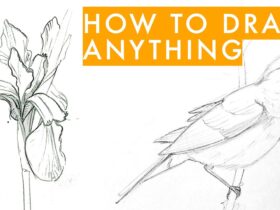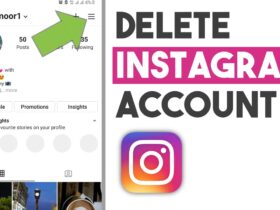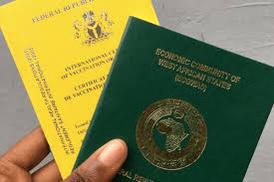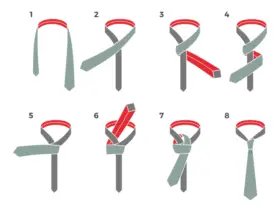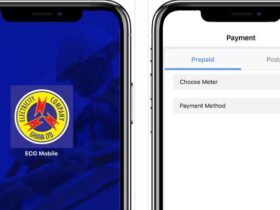You can sell common book formats such as hardcovers, paperbacks, or ebooks on Amazon. Whether you want to list and sell books from your brick-and-mortar store, resell non-fiction books you’ve already read, part with beloved comic books, list rare hardcover collectibles, or get rid of children’s books, you don’t need to look any further.
Summary

Why sell books on Amazon?
-
- Get started with just a few books (no need for a large inventory)
- Choose from a wide variety of genre categories
- Sell books for cash or credit
- You choose how to fulfill orders
- Merchant Fulfilled Network (MFN) – Is the DIY Route. List books on Amazon, then pack and ship orders to customers yourself. (This is often referred to informally as Fulfillment by Merchant or FBM.)
- Fulfillment by Amazon (FBA) – Is the Do It For Me Route. List books and have Amazon store, pack, and ship to customers for you
- Sell books multiple ways—by title, ISBN, weight, or by scanning the barcode
Did you know?
Amazon began by selling books

What types of books can you sell on Amazon?
You can sell common book formats such as hardcovers, paperbacks, or ebooks on Amazon. Whether you want to list and sell books from your brick-and-mortar store, resell non-fiction books you’ve already read, part with beloved comic books, list rare hardcover collectibles, or get rid of children’s books, you don’t need to look any further.
Keep in mind some books sell better than others. Doing your research to find high-demand books can pay off. The Best Sellers in Books list can help you find popular current titles based on sales.
Here are popular book types you can sell on Amazon:
Sell new books online
Sell used books online
Sell textbooks online
Sell books without an ISBN
Sell collectible or rare books online
Sell ebooks online

7 steps to selling your book on Amazon
Step 1: Decide what type of books you want to sell
Although there are various ways to find books to sell, the simplest way to begin is generally to sell books you already have.
You can also build your inventory through the following channels:
-
- Wholesale: Buy in bulk for lower prices online or at bookstore closings. You can also procure new books in larger quantities from distributors or publishers. You may not have total control over what you get, but you can get more books at wholesale costs.
- Local sources: Find used books by browsing local library book sales, used book stores, yard sales, and thrift shops. You may also discover collectible books at estate sales.
- Auctions: Seek out auctions, estate sales, or farm sales selling used or collectible books.
Step 2: Create your Amazon seller account
- The Individual selling plan is a pay-as-you-go plan that provides access to basic listing and order management tools. You can create listings one at a time by matching products to existing pages or creating new pages in the Amazon catalog. You don’t pay fees to Amazon unless an item sells, so it’s a good starting point for entrepreneurs new to online selling.
- The Professional selling plan gives you access to advanced selling tools for a monthly subscription fee. Unlike the individual selling plan, you pay a monthly fee regardless of whether you list or sell anything (instead of a per-item fee—although both plans pay referral fees on items sold). The Professional selling plan gives you access to inventory tools to upload batch files and manage your orders through feeds and reports. These tools are especially beneficial to medium- to large businesses.
Compare selling plans to determine which option is best for you.
Once you pick a plan, consider using this handy cost calculator to estimate your per-unit sales margin. Once you’re ready, set up your Amazon seller account. This will allow you to start selling on Amazon. It will also give you access to the Seller Central dashboard, where you can list products, manage your inventory, and fulfill orders.
Step 3: Decide how you will fulfill orders
- Merchant Fulfilled Network (MFN) – You store inventory, pack, and ship books independently.
- Fulfillment by Amazon (FBA) – You ship books to an Amazon Fulfillment Center, and they do the rest for you. FBA includes storage, packing, shipping, customer service, and returns. Using FBA to ship your products is also the easiest way to get the Prime badge for most offers. Many Amazon customers look for products with the Prime badge because it represents fast, free shipping.
Step 4: Set your book pricing
- What condition is the book in?
- Is the book new or used?
- Is the book a collectible (such as a first edition)?
Did you know?
You can automatically manage pricing on Amazon
- The Automated Pricing Tool lets you automatically adjust prices for your available inventory based on your pricing rules and preferences.
- The Match Low Price feature helps you match the lowest price with the click of a button
Step 5: List your books on Amazon
- Type the book’s ISBN code into Amazon’s search bar. If the book was printed before 1970, enter the title manually.
- Once on the product listing page, click the “Sell on Amazon” button.
- Enter the SKU. This can be an SKU of your choice, or if you leave it blank, Amazon will generate one for you.
- Select your price. To match the lowest price, simply click that button.
- Enter the total quantity. The default is one unit.
- Choose the condition. It’s vital to be 100% honest about the quality of each book.
- Select your fulfillment channel (MFN or FBA).
Learn the lingo:
ISBN, SKU, and ASIN
ISBN: International Standard Book Number
SKU: Stock Keeping Unit
ASIN: Amazon Standard Identification Number
Step 6: Promote and market your books
Take advantage of Amazon tools
If you’re selling books, check out Amazon’s Seller University for free training videos to help you learn the basics of sales, selling tools, advertising, and promotions. You can help grow your business, drive sales, and measure the effectiveness of your ads with Amazon Advertising. Check out the Advertising Learning Console to learn more.
If you’re an author, promote your own published books on Amazon with Kindle Direct Publishing (KDP).
Promote your online book business on social media
Pay attention to reviews
When you’re selling books you didn’t write, you might not take book reviews personally. But you will want to monitor your Amazon reviews about products and customer service.
Good reviews go a long way when it comes to building confidence in your online brand. Here are a few tips to help you earn positive feedback:
- Be honest about item condition
- Ship orders on time
- Respond to customer inquiries quickly
- If issues arise, solve them as soon as possible
Step 7: Pack and ship your books
Preparation is essential to getting your books to their destination securely. Remember, happy customers are repeat customers!
How you handle shipping depends on which fulfillment method you choose.
Fulfilling orders with the FBA method
- Create your shipment through your Amazon Seller Central account. See the step-by-step process to send or replenish inventory to Amazon.
- Pack up your books to ship to an Amazon Fulfillment Center. For more information, see small parcel delivery to Amazon, packaging and prep requirements, and product size tiers.
- Label your packages. Be sure to check shipment label requirements.
- If the books are brand new, see requirements for FBA products sold as new.
- See how Amazon receives and stores your inventory.
How Amazon receives your inventory
Fulfilling orders with the MFN method
- Manage orders from your seller account.
- Pack books securely.
- Get your packing slip ready and printed. Amazon will generate a PDF product and shipment label (see print a packing slip).
- Send your package using the carrier of your choice. Note you can use Amazon’s discounted shipping to send to a fulfillment center.
- Confirm the order (see how to confirm a shipment).
Buy Shipping services

7 quick tips for selling your books online
#1 – Research which genres and categories sell best on Amazon
#2 – Check a book’s Best Seller Ranking
#3 – Be 100% honest about the condition of your books
- New
- Like new
- Very good
- Good
- Acceptable
#4 – Take care when packing and shipping
Follow all shipping guidelines and pack books securely, so orders reach customers in excellent condition.
Books can get a fair bit of abuse during shipping, but several measures can help ensure orders arrive in tip-top shape:
- Use multiple packing materials. Appropriate packaging could involve a combination of bags, Kraft paper, or bubble wrap.
- Protect book corners, edges, and dust jackets.
- When shipping more than one book, consider wrapping each one individually or using single book boxes for protection. For multiple books, you can place pieces of flat cardboard between each book.
- Books should fit snugly in the padded envelope or box, so there’s little wiggle room.





















